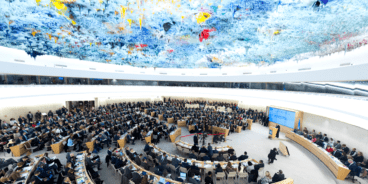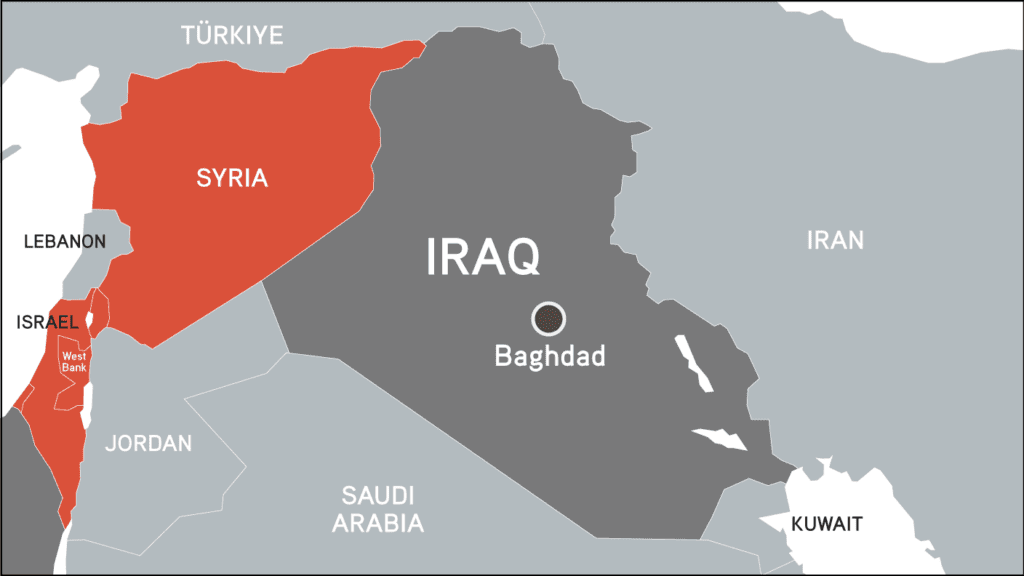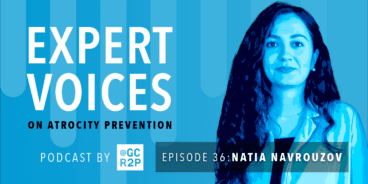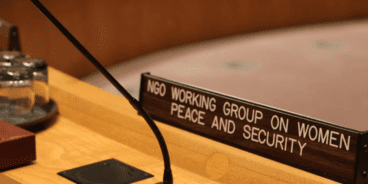
Iraq

Populations in Iraq suffered mass atrocities and violations of international law by various armed forces and non-state armed groups in the context of mass protests during 2019 and a 2014-2017 conflict.
BACKGROUND
Mass protests across against unemployment, poor public services, corruption and the government’s sectarian quota-based system, erupted in Iraq on 1 October 2019. While suppressing the protests, Iraqi security forces utilized disproportionate and deadly force, resulting in at least 600 deaths recorded by Amnesty International. The Iraq High Commission for Human Rights also indicated in February that it had recorded over 15,000 serious injuries.
The UN Assistance Mission for Iraq (UNAMI) has determined that Iraqi authorities have committed serious human rights violations and abuses including the deliberate killing of unarmed protesters, and misuse of tear gas and stun grenades. Security forces have arbitrarily detained over 3000 demonstrators, subjecting many to ill-treatment or torture. UNAMI has also documented killings, forced disappearances and arbitrary detention of protesters carried out by militias and unidentified third parties.
Violence by security forces sparked outcry from Iraqi political and tribal leaders, prompting Prime Minister Adel Abdul Mahdi to resign on 29 November. President Barham Salih named Mustafa al-Kadimi, Iraq’s head of intelligence, as the latest prime minister-designate on 9 April. During his first week in office, he ordered Iraqi courts to release anti-government protesters detained since the 2019 mass demonstrations, and pledged justice and compensation to the relatives of those killed by excessive force.
Since July 2020, renewed anti-government protests have taken place across southern Iraq. Throughout August, targeted killings of protesters in the city of Basra have been perpetrated allegedly by militias affiliated with the Popular Mobilization Forces (PMF), sparking further protests.
The mass killing of protesters comes just two years after the end of another deadly armed conflict in Iraq. During 2014 the so-called Islamic State of Iraq and the Levant (ISIL) militarily seized vast territory across Iraq and Syria and launched a systematic campaign of atrocities across northern Iraq. In response a military coalition comprised mainly of the Iraqi Security Forces (ISF) and Kurdish Peshmerga, supported by the US-led coalition, launched offensives and eventually declared victory on 21 November 2017. The PMF and Iranian-backed militias also played a key role in defeating ISIL.
Throughout the conflict ISIL fighters perpetrated systematic violations – such as killings, sexual slavery, torture and forcible transfer – that may amount to war crimes, crimes against humanity and genocide. Hundreds of civilians were also killed in anti-ISIL coalition airstrikes, and members of the ISF, PMF and Peshmerga carried out forced evictions and targeted killings of Sunni civilians in formerly ISIL-held territories.
ANALYSIS
Cultural identities and religious loyalties continue to be manipulated by various forces and authorities in Iraq, posing a threat to the country’s long-term political stability and social cohesion. Targeted attacks and abductions perpetrated by militias allegedly affiliated with the PMF heighten risks of violence, while ongoing violations of international law by various armed forces and non-state armed groups present grave risks to civilians in Iraq.
Influential armed extremist groups, including ISIL, could exploit this new wave of instability and perpetrate further violence against civilians. There is also a risk that the conflict between Iran and the US could spiral into yet another regional armed conflict with devastating consequences for civilians in Iraq.
The Iraqi government needs ongoing international assistance to uphold its responsibility to protect.
INTERNATIONAL RESPONSE
On 21 September 2017 the UN Security Council authorized the establishment of the UN Investigative Team to Promote Accountability for Crimes Committed by Da’esh/ISIL (UNITAD) to support domestic accountability efforts and collect evidence regarding potential atrocities committed by ISIL in Iraq. UNITAD has identified 160 ISIL-affiliated individuals who could potentially be held legally responsible for mass atrocities and has completed the excavation of 17 mass graves in and around the village of Kojo in Sinjar. UNITAD has also obtained over two million mobile telephone data records that correlate to the time periods and geographic locations of atrocity crimes committed against the Yazidi community in Sinjar during 2014.
Since October 2019 the Head of UNAMI, UN Secretary-General, Office of the UN High Commissioner for Human Rights and six UN Special Rapporteurs have all released statements condemning the unlawful killing of protesters, urging the Iraqi authorities to cease violence, and calling for accountability.
NECESSARY ACTION
The government of Iraq should implement a code of conduct for the security forces that is grounded in respect for universal human rights. Iraqi authorities must carry out an immediate investigation into the use of deadly and disproportionate force against unarmed civilian protesters and engage in meaningful security sector reform.
The Iraqi government should take active steps towards inter-communal reconciliation and minimize the risk of recurring armed conflict. The PMF and all other non-state armed groups should be demobilized and reintegrated into society. The government of Iraq should adopt enabling legislation to incorporate genocide, war crimes and crimes against humanity into domestic law. All perpetrators of past atrocities in Iraq, regardless of affiliation, should be held accountable for their crimes.
Related Content


